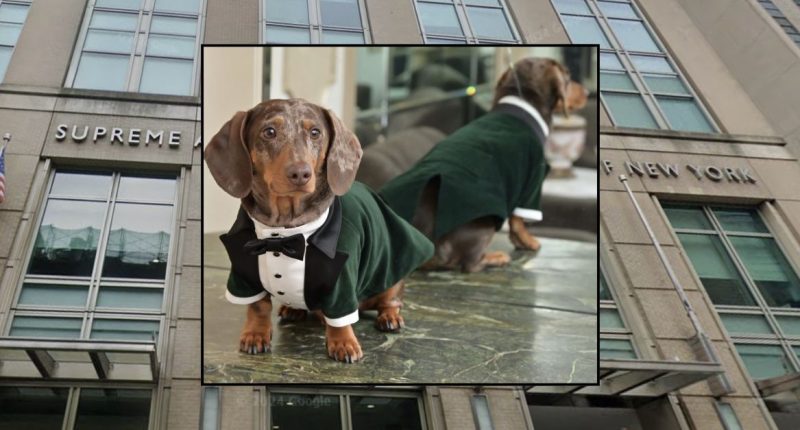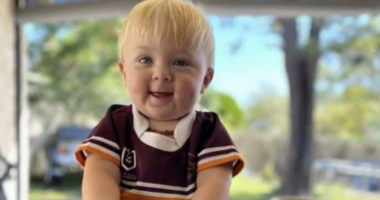Share this @internewscast.com
Background: The Kings Supreme Court building in Brooklyn, N.Y. (Google Maps). Inset: Duke (@trevdeblase/Instagram).
A judge in New York has declared that dogs can be regarded as part of a person’s “immediate family,” allowing dog owners to pursue emotional damages if they witness their pet being harmed.
On Tuesday, Judge Aaron Maslow of the Kings Supreme Court in Brooklyn ruled that the family of a 4-year-old dachshund named Duke can seek emotional damages in their case against the driver responsible for his death. As detailed in court documents obtained by Gothamist, a New York City-based publication, Duke was tragically struck by a vehicle nearly two years ago while being walked by 66-year-old Nan DeBlase, the mother of Trevor DeBlase who had adopted Duke.
Duke was on leash at the time, and the driver was reportedly speeding.
Love true crime? Sign up for our newsletter, The Law&Crime Docket, to get the latest real-life crime stories delivered right to your inbox.
During an interview with the New York Post, Nan DeBlase described the “traumatic” ordeal of witnessing Duke being fatally hit on July 4, 2023, by a car driven by Mitchell Hill, whom the DeBlase family has sued. Security cameras recorded the event, showing Hill neglecting to stop at a stop sign and making a left turn without signaling on the street where Nan DeBlase was walking Duke. She was almost hit herself and narrowly avoided the car by jumping aside.
But Duke was not so lucky. Nan DeBlase told the Post, “It was very traumatic, extremely. I mean, I was hysterical when it happened.”
She added, “I took a step to get out of the way of this monster, who not only ran a stop sign, but was making a turn. If you don’t see the stop sign, how do you see people? It was like he was driving with his eyes closed, and yet was able to make a left turn — I can’t even understand it.”
Trevor DeBlase posted later that day on his Instagram account, “A few hours ago a man blew a stop sign, almost hit my mother, and hit my poor, sweet Duke and killed him. I can’t even believe I am typing these words right now. I loved this dog more than life itself and things will never be the same without him.”
The DeBlases sued Hill a month later for negligent driving, endangering Nan DeBlase, and causing mental distress. Hill’s attorneys argued that the DeBlases could not ask for compensation for the emotional toll of their loss because Duke was not a member of their family — he was technically only their property. The DeBlases could only sue for the dollar value of Duke, which was about $1,500, plus medical costs.
Maslow agreed that Trevor DeBlase was only entitled to sue for that amount. However, when it came to Nan DeBlase, a witness to Duke’s violent killing who was “tethered” to the dog at the time, Maslow disagreed.
Maslow wrote in his ruling, “Since Nan DeBlase was tethered to Duke at the time of the accident, it is proper for her to recover damages for emotional distress resulting from witnessing Duke’s death and fear for her own safety, all due to Defendant’s negligent, indeed reckless, operation of his vehicle.”
But Maslow seemed to go even further in his ruling against Hill, writing, “It is reasonable for a jury to conclude that witnessing Duke being crushed led to emotional distress that goes beyond that which is generally felt by the loss of mere property.”
He also wrote, “This Court fails to see why a beloved companion pet could not be considered ‘immediate family’ in the context of the zone of danger doctrine under the fact pattern presented by Plaintiffs.”
Maslow, seemingly considering the precedent he was setting in his ruling, included a “carveout” that the ruling only applied to pets being walked on a leash. But he also acknowledged that “it stands to reason that companion animals, like Duke, could also be recognized, as a matter of common sense, as immediate family.”
According to the Post, Hill did not present any evidence in his own defense.
Maslow’s ruling allows the lawsuit to proceed to trial.
















